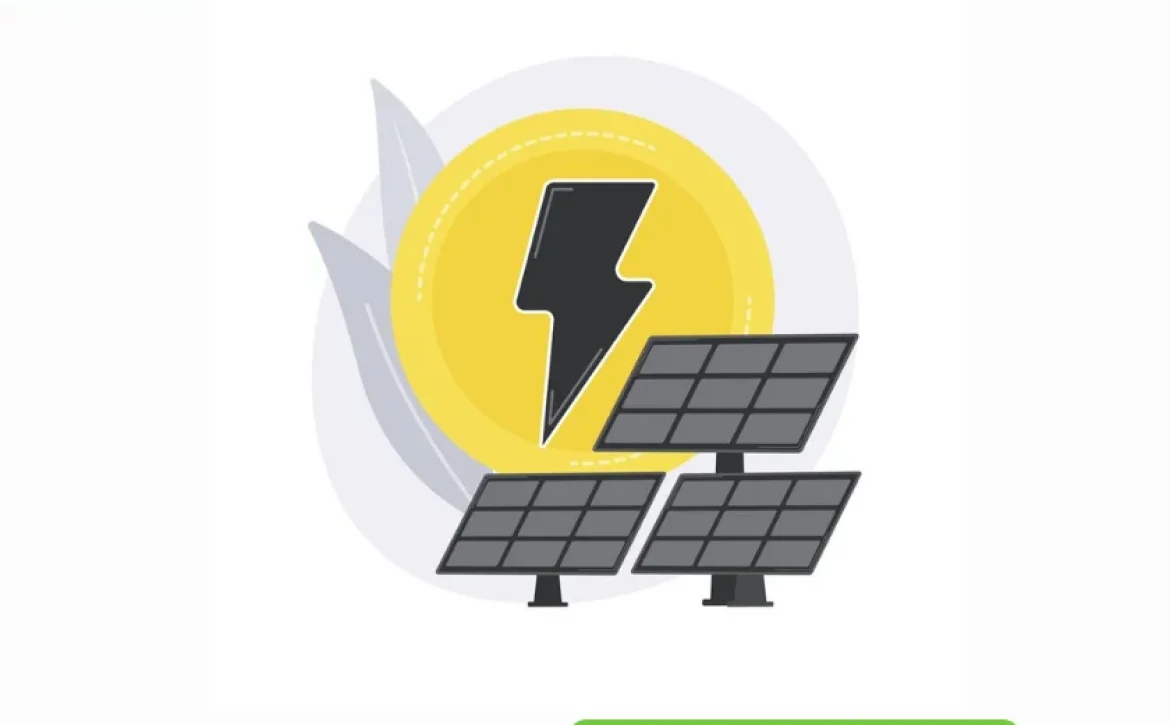What are Effective Methods for Identifying Solar Scams?
As homeowners seek sustainable ways to power their homes and decrease their carbon footprint, solar panels have emerged as a popular and environment friendly option.
But every rose comes with its own particular thorns. The increasing popularity of solar energy has also given rise to solar scams. Unscrupulous individuals and illegitimate businesses are capitalizing on the increased interest in solar technology, resulting in a rise in fraudulent activity within the solar sector.
The importance of recognizing and avoiding solar scams cannot be overstated. Here is how you can identify solar scams, and take measures to not become a victim to them.
Why are Solar Scams Growing?
The proliferation of solar energy into the masses has increased dramatically during the last decade, as homeowners embrace renewable energy to minimize their dependency on traditional power sources. According to recent data, more than 2.6 million homes in the US alone have installed solar panels, representing a significant rise in solar infrastructure.
The rise in popularity of solar energy and the spread of scams are not coincidence. As demand for solar installations rises, so does competition among solar businesses fighting for a piece of the market. This competitive ecosystem fosters an environment in which unscrupulous companies abuse vulnerable homeowners.
Scammers are driven to the solar business because of the financial incentives available and consumers’ eagerness to invest in sustainable solutions. The customers’ relative lack of understanding of possible risks associated with dealing with fraudulent individuals is also a big motivation for conducting these scams.
Widespread Solar Panel Scams
Here are some of the solar scams commonly occurring worldwide:
1. Fake Solar Companies
Fake solar firms are businesses that act as real solar installation suppliers but do not intend to fulfill the advertised services. They frequently employ misleading strategies to entice homeowners, and appear to be competent and trustworthy at first glance.
Some scammers may set up a counterfeit solar installation firm, replete with a website, phony client testimonials, and a professional-looking internet presence. Most scammers also have the ability to imitate well-known and respectable solar enterprises by utilizing similar names, logos, and marketing materials to appear as legitimate businesses.
They compel homeowners to pay a large upfront payment in exchange for the installation of solar panels, which may never materialize. The crooks flee with the deposit, leaving the homeowners out of money.
Victims may not have a solar system installed despite having paid for it. This not only causes financial loss, but also deprives homeowners of the projected energy savings.
Deceptive activities by fraudulent solar providers can cause legal hurdles for homeowners, who may encounter difficulties in obtaining redress for the swindle.
There is a simple way to avoid all of this: do not engage with any solar company unless you have conducted exhaustive research on their business, and have prior client testimonials proving that company to be real and legitimate.
2. Identity Theft Scams
Identity theft schemes in the solar installation industry involve sophisticated fraudsters who take advantage of the process by using bogus solar documentation. Understanding how scammers use this deceptive strategy is critical for homeowners to protect themselves from the serious consequences of identity theft.
Identity theft via bogus solar documentation is a deceitful approach used by scammers to get sensitive personal information.
Scammers may offer homeowners with seemingly authentic solar documentation that closely resembles actual contracts or papers used in the solar sector. Homeowners are asked to fill out these bogus forms, which include personal information such as names, addresses, social security numbers, and financial information.
Scammers may act as official solar agents, generating a sense of credibility in order to persuade homeowners to submit the needed information. The papers may detail fraudulent solar packages or installations in order to entice homeowners into signing a forged agreement. Scammers can then misuse this information, placing homeowners at danger of identity theft.
Just how bad can this ‘identity theft’ become for homeowners who are being scammed?
Well, for starters, the stolen information can be used to create fake credit accounts, make unlawful purchases, or participate in other financial activities, resulting in considerable monetary losses for the victim.
Unauthorized activity can also harm the victim’s credit score, making it difficult to get loans, mortgages, or other financial transactions in the future.
Worst of all though, is the potential for homeowners to become embroiled in legal proceedings as a result of illegal activity carried out using their stolen identities. If your documents, with your identity and/or signatures have been used for illicit activities, good luck telling the authorities that you weren’t the one actually doing it.
Don’t like the sound of it? Good. When faced with any solar-related documents, homeowners must exercise utmost caution and confirm the validity of the documents and the personnel engaged in the solar installation process.
Individuals who keep aware and vigilant can considerably lower their chances of falling victim to identity theft scams in the solar business.
3. Misleading Contracts
Deceptive contracts are a major problem in the solar sector, as dishonest companies can use a variety of strategies to abuse homeowners.
Deceitful solar businesses sometimes conceal unpleasant terms and conditions in the tiny print of contracts. Homeowners mostly overlook these details simply because they don’t feel like going through every word of what is being put in front of them. Well, they should, because these terms and conditions can result in unintended repercussions such as hidden fees or other stipulations unfavorable to them.
Others might include inflated promises in their contracts, suggesting unrealistic savings or benefits that have no chance of seeing the light of day. This strategy attempts to entice homeowners into signing agreements without a thorough grasp of the true outcomes.
Fraudulent contractors may also provide unclear or confusing performance warranties for solar panels. This lack of transparency will leave homeowners with little legal recourse if the device fails to work as expected.
Not clarifying warranty conditions is also a favorite tool of scammers using legal contracts to deceive you. This leaves homeowners unprotected in the event of system breakdowns or flaws.
Some of the solar businesses can use complex financing methods that are difficult for homeowners to fully come to grips with. Scammers can then exploit the confusion by manipulating payment schedules, interest rates, and total financial obligations against homeowners who might have no clue about what is going on, but are forced to comply because of legal reasons.
In order to avoid being at the receiving end of deceptive but legally binding contracts, make a habit of reading every word of legal documents that are put in front of you, before putting your signatures on it.
Effective Methods for Identifying Solar Scams
Good news is, solar scams require scammers to put in a lot of work too, and with some due diligence, you can identify solar scams from the warning signs, before you commit to them. Here are some of the most obvious red flags in the solar energy scene that help you identify solar scams.
1. Unrealistic Promises
When you’re researching for a solar energy partner, one of the most major red flags to look out for is overstated savings claims. Mischievous solar enterprises will undoubtedly try to lure you in by painting an inaccurate picture of solar energy’s prospective advantages.
Scammy solar marketers may try to entice potential consumers with unrealistic claims of massive savings. These statements, whether they promise to fully eliminate energy expenses or estimate savings that are considerably above industry standards, should sound off your alarms.
Legitimate solar companies make estimates based on a variety of criteria, including local sunshine conditions, system size, and energy use. On the other hand, exaggerated claims frequently range dramatically from the industry’s average savings, enabling customers to make decisions based on misinformation.
Every homeowner’s solar savings potential varies depending on factors such as geographic location, roof orientation, and current energy demand. A trustworthy solar company will evaluate these factors and offer a realistic estimate of the savings possible with a solar system.
Consumers should be wary of salespeople who exaggerate the benefits without fully assessing their unique circumstances. Claims that seem too optimistic and fail to account for individual circumstances may suggest a lack of transparency or knowledge on the part of the solar supplier.
In order to check whether the savings promises made by a solar company are realistic or fantastical, homeowners are recommended to obtain multiple quotations from various suppliers. Cross-checking those estimates provides a more accurate knowledge of prospective savings and helps in the identification of any outliers that may raise concerns.
2. Intense Sales Pitches
High-pressure sales techniques are frequently used by solar fraudsters to trick consumers into making hasty decisions without fully considering the consequences. One popular strategy is to use pressure techniques to force homeowners to sign contracts right away by going door to door.
If there is a person knocking on your door, and enticing you into buying their ‘exclusive solar panel offer’ or a ‘limited time solar discount’, that is most likely a fraud. They intentionally create a sense of urgency to compel homeowners to sign contracts quickly, frequently without giving them enough time to think things through.
Scammers typically use high-pressure techniques to make it difficult for homeowners to examine the fine print, which is a sign of lack of openness. Making hasty judgments might cause one to sign contracts without fully understanding the terms, which could have negative financial and solar system-related effects.
If the salesman is pressing you to make a decision right there right now, proceed with caution. Claims that the ‘deal is only valid for a short period of time’, or, ‘prices will increase tomorrow’ are the favorite catchphrases of this type of scammer.
Luckily, you can easily spot these kinds of scams, and stop yourself from falling for them. Legitimate and reputable solar companies will not put undue pressure on you to decide right away since they recognize the importance of such an investment.
Take as much time as necessary to consider the offer. A sincere salesman has to be prepared to address all of your questions and offer comprehensive details on the solar system and the terms and conditions of the agreement.
3. Offers of Free Solar Panels
Everyone loves free stuff, so scammers figured that people will also love offers of ‘free’ solar panels. These fraudsters might approach you with a proposal to give you solar panels free of cost.
In reality, solar panels are not free (sighs). Certain companies could advertise a grace period prior to the start of monthly payments or provide offers that need no down payment. These ostensibly generous conditions, however, frequently conceal the actual expenses related to the solar installation.
Solar panel claims that are “free” might mean that there are other hidden costs and fees included in the contract. Due to carefully worded, disguised costs, homeowners will ultimately end up paying more in the long term.
Businesses that offer “free” solar panels typically use a strategy called “third-party ownership.” In this agreement, homeowners lease or buy the energy produced by the solar panels in exchange for allowing a solar panel firm to place panels on their roof.
Even though the installation is marketed as “free,” these businesses still profit financially from leasing payments and sometimes large incentives. Homeowners should exercise caution when considering third-party ownership due to the financial and long-term commitment involved.
Doesn’t make sense? Let us explain. When a solar company installs solar panels on your property, the two parties (you and the solar company) come into a legal agreement known as Power Purchase Agreement (PPA). The solar company then owns all the solar apparatus on your property, sells that solar energy to you at a slightly reduced cost than the local power grid, and retains the right to sell the solar power to whoever they see fit.
PPAs and solar leases frequently have long contracts, usually lasting 20 years or longer. It is important for homeowners to consider carefully if signing such longer agreements fits with their lifestyle and long-term goals.
Certain contracts could have “escalator clauses,” which lead to annual increases in energy prices. It’s essential that homeowners are aware of these provisions and think about how they can affect their long-term monetary obligations.
Businesses who use the “free” solar panel marketing pitch might not be completely honest about the intricate financial details. Homeowners are urged to carefully review the terms of the contract, ask tough and relevant questions from such companies, and demand openness on any possible fees.
4. Salespeople Pretending to be from the Utility Company
Salespeople pretending to be utility company reps is one of the dishonest strategies used by solar fraudsters, and everyone interested in solar energy adoption should know how to spot them.
Representatives of actual utility companies will make it obvious who they are and what they do. If a salesman implies a collaboration with the utility company without expressing it openly, and employs imprecise and deceptive language, then you should know they’re up to no good.
Anybody posing as a utility agent should be asked to provide identity and credentials. Real utility workers will have the appropriate paperwork on them and be happy to provide it upon request.
To find out whether your utility provider has agents in your region, get in touch with them directly. Instead of using the salesperson’s information, use the official contact details from your utility company’s website or invoices.
Utility providers also plan their visits or appointments ahead of time with their clients. Be cautious and make sure the person you meet at your door is who they say they are when they suddenly show up and ask for identification before giving them any information.
Representatives of legitimate utility companies usually drive vehicles bearing corporate markings and wear uniforms with the company’s emblem. To verify legitimacy, pay attention to attire, identity badges, and the presence of an official vehicle.
If you’re confused, check out the official website of your utility provider to learn about any current promotions, discounts, or outreach initiatives.
You can guard against salesmen posing as utility company representatives being watchful and making careful decisions.
5. Overplaying Fears of Future Electricity Price Hikes
Another favorite tactic of solar scammers to hustle you into believing them is by giving you inflated (and impending) estimates of future increases in energy prices.
An accurate projection of future power costs is required to figure out the long-term returns on a solar investment. These estimates are used by homeowners to evaluate the long-term cost savings that solar panels may provide. On the other hand, an exaggerated projection of future power costs may distort (or overhype) the apparent financial benefits, which can lead to consumers making poor decisions.
Most quotes in the solar industry often come with projections of savings over 25 to 30 years, based on anticipated increases in electricity prices. However, certain common mistakes can compromise the accuracy of these estimates.
For example, some solar companies can use overly optimistic predictions for yearly power price increases, which surpass current patterns. Estimates of 3% or more each year without sufficient supporting data can be misleading, painting a far more optimistic picture than is reality.
An installer should be able to justify the specified yearly rise amount. Without a strong basis or proper data, homeowners risk receiving savings forecasts that may never be achieved.
Homeowners can avoid overestimations and unrealistic expectations by remaining watchful during the quotation process. Gathering quotations from multiple solar companies enables a comparative examination of projected future power rates. If the differences between those quotes are significant, that might point towards unreasonable projections.
Familiarize yourself with the power pricing patterns in your area, as this knowledge establishes a baseline for determining the appropriateness of the expected annual increases.
If the solar installation delivers estimates without clear supporting data or reasoning, question about the approach used to arrive at the chosen values. A clear and reasonable explanation should be offered.
Like it or not, exercising skepticism and pessimism is the key to not be scammed while listening to overblown estimates of future energy price hikes. A thorough examination of the whole process guarantees that the anticipated savings are realistic and feasible, resulting in a more secure solar investment.
结论 :
As the solar sector grows, the number of frauds and fraudulent operations has sadly increased. Identifying and avoiding these scams is more than just good financial sense; it is an important step in preserving your investment, maintaining the lifespan of your solar system, and securing your personal information from identity theft.
Always keep an eye out for red flags. These signs usually indicate possible frauds or deceptive activities before they take place. If something appears too good to be true, it probably is.
Be vigilant, be protective of your money and identity, and don’t be greedy. That will help you in identifying and avoiding solar scams.
Enjoyed the article? Drop your questions in the comments below! Got a personal query? Reach out to 智能能源间隙 directly. Let’s connect!


